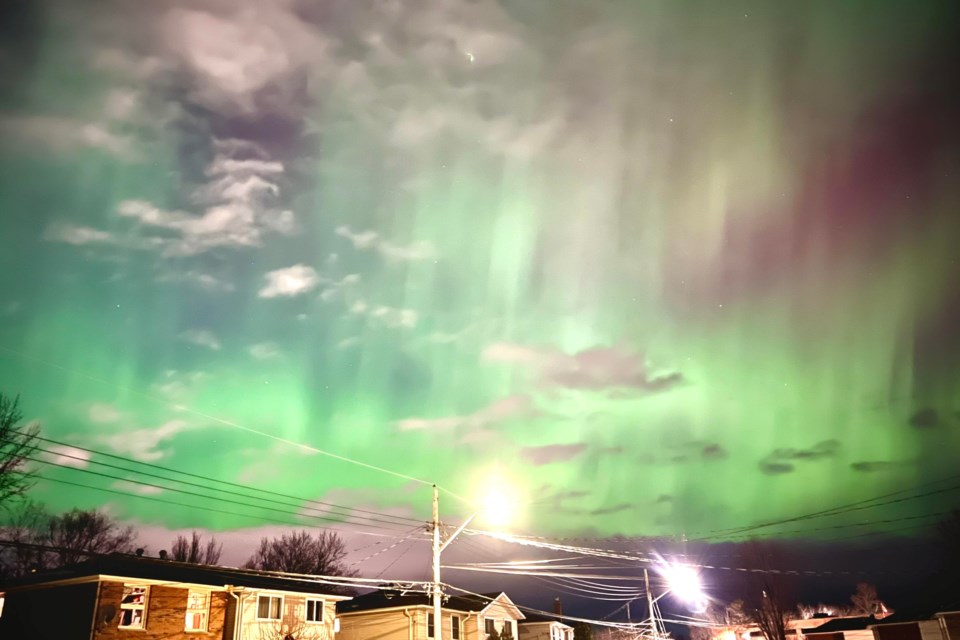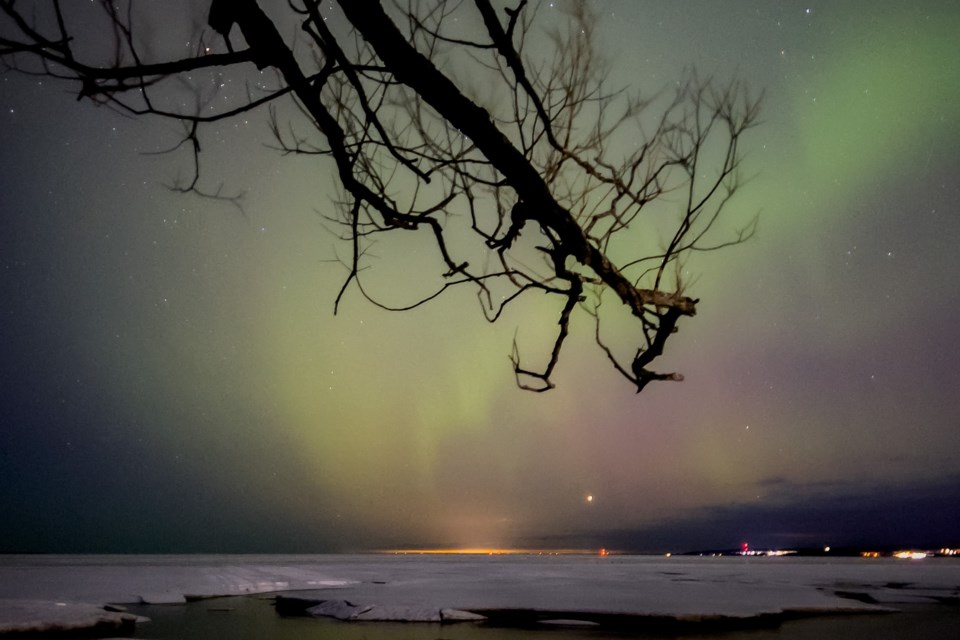Michelle Cantin says she uses a "northern lights app" that lets her know when to head out to see a beautiful sight on a chilly northern Ontario night.
Cantin tells BayToday the app was only showing a 14 per cent chance of viewing the aurora borealis but that was enough for her to venture down to the North Bay waterfront around 10 p.m. on Thursday evening where her persistence paid off and she captured some gorgeous shots (see gallery above).
Cantin's shots were taken from the waterfront looking west across Lake Nipissing toward St. Joseph's Mother House and Sturgeon Falls.
See related from February: Photos: Intense aurora borealis lights up northern skies
Jorge Michael Paulino used his iPhone to capture the image below. Paulino says he has been hoping for a good shot of the northern lights and Wednesday "just so happened to be the right timing," as he took the shot from Marshall Park Drive in West Ferris. He says he used "no filter. Just my 13 Pro Max."

The northern lights emit impressively vivid colours that dance across the night sky: a mix of red, pink, green, blue and purple. Green is the most common colour— it’s the easiest for our eyes to see against the dark backdrop. The colours tend to move in waves or resemble shimmering curtains that stretch out across the horizon, as described by the U.S.-based National Oceanic and Atmospheric Administration.
See: A display like no other: Where to see the northern lights in Ontario
Did you know that auroras develop as a result of space weather? We have geomagnetic storms to thank for these awesome colourful displays. Auroras are the light shows that take place after storms in space have passed.
The AuroraZone.com website states the light can be visible as soon as darkness falls or begins to fall, but the most intense displays tend to appear between 9 p.m. and 2 a.m. The brightest and most intense aurora borealis occurs between 9:30 p.m. and 1 a.m.
With files from the Village Content Studio.



